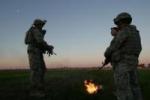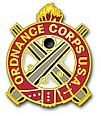I'm finally ready to begin telling my story.
SHADOW ON THE SUN
CHAPTER ONE- Fort Bragg
"Is everybody happy?" cried the Sergeant looking up, Our Hero feebly answered "Yes," and then they stood him up; He jumped into the icy blast, his static line unhooked, And he ain't gonna jump no more. - Blood on the Risers
“Green light, Go”
January 2006. The brisk southeastern wind zipped into the unpressured cabin of the C-130 as the Air Force Loadmaster turned control over to the Jumpmaster, “Army- your door.” Through the eerie green candescent light, I watched First Sergeant (1Sgt) Royce Manis begin the intricate task of inspecting the door for any imperfections or obstacles that could impede the jumpers exit. During his fifteen years in the elite Army Ranger Regiment, Royce perfected this task through endless repetition, and his body swept the door gracefully in calm, fluid precision as delicate and accurate as the San Francisco symphony conducting Beethoven’s Fifth. Later, in my darkest hour, Royce would assist me in fighting through Dante’s seventh level of hell with the quiet professionalism that embodies the best mantra of the non-commissioned officer corps.
Next, Royce thrust his upper body into the night to inspect the outside of the aircraft ensuring that nothing protruded to obstruct our descent and confirming the pilot's navigation by identifying terrain features marking the distance from the drop zone (DZ). Satisfied that the right door was kosher, he pulled himself back into the bird, spun 180 degrees clockwise, extended a thumbs up, and waited for Sergeant First Class (SFC) John Coomer to finish checking the left door.
John is another mild mannered quiet professional: a father, brother, husband, and leader. John is a guy you want to follow in any situation. His calm demeanor would later prevail in the worst of circumstances. Ten seconds later, Coomer and Manis gave a silent nod, turned towards the jumpers, extending their arms parallel with index and middle fingers pointing forward, arched an imaginary ‘M’, and sounded off in unison,
“Stand-by.”
With all inspections complete, the Air Force pilots navigated towards the DZ slowing to 130 knots preparing to unload 64 paratroopers into the darkness of this calm North Carolina night.
As the plane approached the DZ, 1Sgt Andrew Coy walked towards me. For this JFEX (Joint Forcible Entry exercise), Andy served as a safety. He would not jump. Working in conjunction with the Air Force loadmaster, his tasks were to inspect the safety of the aircraft prior to take-off, accept all static lines as jumpers exit the door, and retrieve the discarded static lines and parachute straps back into the aircraft. Then, he returned with the crew to the corresponding airfield. It is an important job, but outside of about three minutes of high adventure, it is rather boring and mundane.
Andy was one of the few multiple tour Iraq and Afghanistan veterans in my new unit. He and I quickly hit things off when I transferred to Fort Bragg in June 2006. We transcended past the “Old” 1990’s Army of parades, inspections, cutting grass that didn’t grow, and superficial training exercises against a Russian Army dismantled sixteen years prior. We focused on real combat learned through years of blunt trauma, brothers lost, and costly mistakes. We did not have any answers, but we clearly understood that business as usual was not working
"One minute!!!!"
Andy continued to walk towards me in the bird. Tonight was my first mission as a company commander. Conversely, this jump was his last as a first sergeant. The irony of the situation was not lost on us. He had a son in college and a daughter entering her senior year in high school His duty was at home. Before he walked away, he wanted to impart one last piece of wisdom to his young friend.
“Mike, this is your first mission. I know you are nervous and scared. Let it go and have fun. Command goes by way too fast. Just enjoy it. I know you will do well. Now, go take care of your boys.”
I nodded a knowing nod. I glanced back at my troops. I observed the wide-eyes of Jason Nunez and Jason Swiger preparing for the jump. Nunez, my driver, nuclear/biological/chemcal specialist, and radioman, was a product of Puerto Rico. Swiger, a scout, was the product of New Hampshire. I smiled considering that he was only waiting to land so that he could have a cigarette. I loved both of them to no end. Neither one would return from the valley.
Royce Manis and John Coomer sounded off with a thunderous boom,
“30 SECONDS!!!”
Andy walked back towards the door. Jumpers shook their static lines. It was time. The exit light flashed from red to green.
“GO!!!”
The jumpers rushed out the door. As the momentum of the line sped up, Andy smiled at me, and I began my march towards the exit. I handed my static line to Andy, turned 90 degrees, planted my left foot, and surged my right leg forward. My body followed. I was officially an airborne reconnaissance commander on his first mission.
************************************************** ********
Fort Bragg-Oct 2005
Maybe there is no such thing as time. Striving for a beginning and middle and end to this story, it seems only appropriate to begin at Fort Bragg. In his grand theory of relativity, Albert Einstein proposed that time and matter are a relative function on a graph with gravity serving as the axis lines that hold it all together, an ever flowing wave in the grand ocean of the universe. Einstein went to his grave never truly solving that riddle. Maybe some things are meant to be accepted through faith alone and escape man's grasps. Maybe not. It often seems but a dream within a dream, maybe it was just our time. In that moment, in this beginning, past 9/11, past the invasions in Iraq and Afghanistan, all roads led to Bragg.
"Good night moon, Good night stars, Good night sun,"
I finished the book. My daughter Taylor was falling quickly towards sleep. "Good night moon," she whispered. Together, we said the Lord's Prayer and prayed for all the soldiers in Iraq and our friends and family. She drifted away ending another day. As her eyes closed, I stared awestruck by her angelic glow- that peaceful shining of every father's daughter. I seemed to recognize her face when I looked in the mirror. Taylor Elizabeth remains a spitting image of me. As I bid her goodnight, I promised her that I would do everything in my power to ensure that she had a safe world to grow up in, and I said my own prayer to God asking him to give me the strength to be a good father. Given the crumbling situation overseas, I had no idea if I would ever see her graduate college, get married, and live life. I guess in some ways, I just assumed that she would have to grow up without me. In that moment, as Taylor rested and I gazed, time stood still. It was the closest to heaven that I have ever felt.
I closed her door and quietly walked down the steps of that old house. Nested deep within the recesses of Haymount, the historical part of Fayetteville, the house eclipsed time. The protuding porch, the oak tree encompassing the front yard, and the vast depth of the house reminded me of southern tradition and history long forgotten.
I walked past my wife watching Desperate Housewives, American Idol, or Grey's Anatomy. To this day, in fleeing desperation, I could never understand. She chose entertainment over relationship. She chose Oprah over the faith of our fathers. She left me long ago. I still prayed for her even as our marraige crumbled. As I walk around the streets and observe, I suppose her plight is similar to many of my generation- those that choose comfort over concern, pleasure over duty, and the pursuit of happiness over joy of nation. Too many of us simply believe in nothing. I still feel distraught over the prospect.
I continued to the kitchen to prepare a cup of coffee. It was a late night. There was much work to be done. LTC Poppas demanded that I shape the nature of our squadron and pick my team. The squadron just returned from New Orleans assisting in the relief from Hurricane Katrina. Time was of the essence as we prepared for Iraq. A fight brewed in the east.
That's all that I have to share right now....











Bookmarks